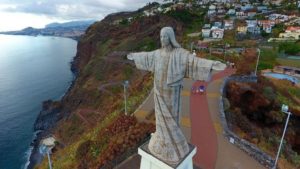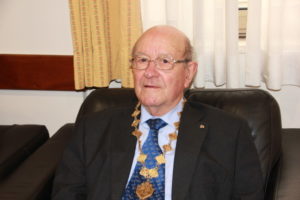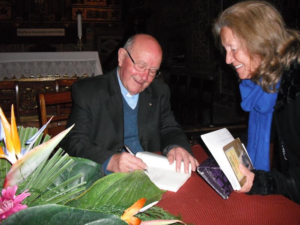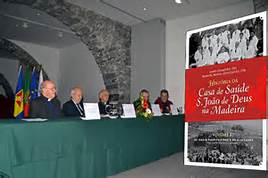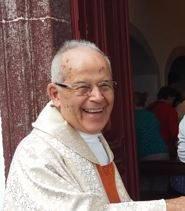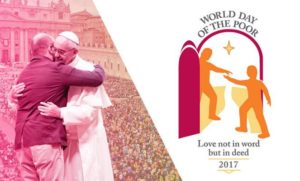FROM FATHER GAMEIRO’S DESK – St John of God’s Provocation and Parable
Brought to you by Fr. Aires Gameiro (aires.gameiro@isjd.pt)
SAINT JOHN OF GOD’S PROVOCATION AND PARABLE (2) … continued from last week’s newsletter
John helped the poor by giving them material means of living. But to those still poorer of life’s meaning, he accompanied them to help discover their purpose. We wonder how he received a so challenging gift from the Holy Spirit: to help women in prostitution conditions to find a meaningful goal for their lives. I will tell you two surprising stories taken from the excellent biographer Francisco de Castro:
(1) Whatever another man gives you, I will give you more. John used to visit the prostitution house to try and take some of them out of there and propose a new way of life for them. He used to go there, his biographer says, on a Friday, carrying a small cross with him. He went directly to one prostitute who he thought was more inclined to a change of life and to moving out. He said to her: “My daughter, whatever another man gives you I will give you more… on condition that you accept to hear me for a while”.
And so he could talk to her, and propose a cognitive restructuring of her self-image and a new life project based on values and Christian virtues (CASTRO, Cap. XIII).
(2) Parable of a third cargo of fish. The following step was to offer the women who accepted his proposal, the means to achieve a new project. One way was to find an adoptive family where these women could find rearing and training to be prepared for a future life, either as married wives or as residents in a women autonomous community home. There is a beautiful story about four of these women who accepted John’s proposal, but on one condition: he had to take them to Toledo to regulate some business. John arranged four mules for them; and he and the hospital servant, John of Avila, nicknamed Angulo, accompanied them on foot for hundreds of kilometers to Toledo. Approaching there, on the way, three of them, one by one, escaped. Angulo was quite angry and upset with John, telling him that this journey with these kind of women was nonsense. And he went on by saying that as they were all the same it was more advisable to let them all go, and come back to Granada immediately. John listened patiently and told him the following parable full of wisdom and mercy.
“Come here, brother Angulo, and listen. Suppose you go to Motril fishing port to carry four cargoes of fish. On the way back, three of them get ruined but one is still good. Would you throw away this cargo together with the other three? Be patient. Let us go on with this one to Toledo for her to regulate her problems there.”
The biographer ads that this woman married and lived an honest life, and she herself told her story to the writer (CASTRO, Cap. XIII).
… (To be continued)
Fr. Aires Gameiro, OH,
(Brother of Saint John of God)
